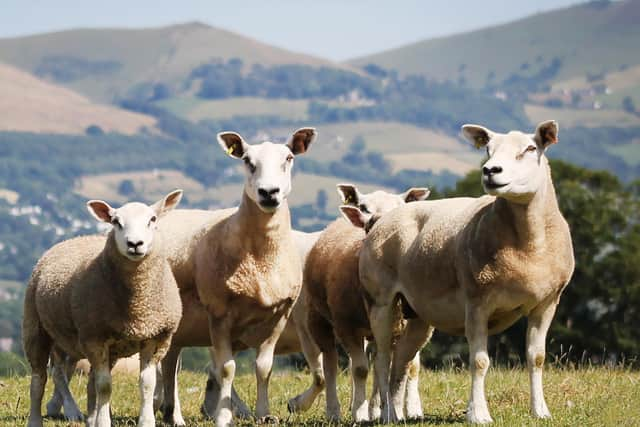Profit key for viable sheep enterprises as BPS reductions start to bite
and live on Freeview channel 276
Texel Sheep Society chief executive John Yates says this is particularly true in England where Basic Payment Scheme payments are reducing progressively until being phased out completely in 2027.
“While the Sustainable Farming Initiative and other indirect support and environmental scheme payments can go some way to filling the gap these do come with conditions and, in many cases, ongoing costs, so farmers need to ensure their base enterprises are profitable as standalone businesses. This provides a robust foundation giving sheep producers confidence to invest further in environmental and land management aspects of their businesses.
Advertisement
Advertisement
“Much has been made in recent months of the applicability of various breeds to certain environments and that is to be applauded where it is relevant. However, ultimately, sheep farmers must choose the genetics which offer them the greatest chance of turning a profit without support payments,” he explains.


Naturally, says Mr Yates, this will differ for some farms and will be dependent on topography and climatic conditions. “There is no doubt, the UK’s diversity of breeds and types is a significant strength to the industry, with many breeds, particularly in the uplands and hills, well adapted to their local environment.
“But, as a large proportion of the UK sheep industry already knows, Texels are adept at fitting in to a myriad of farming systems and environments across the British Isles.
“And, importantly, they command premium prices from all sectors of the industry. Whether sold as prime, store, breeding or cull stock Texel sired animals always generate premium prices, helping reduce risk in farming businesses without adding demands to the public purse.”
Advertisement
Advertisement
As the Texel Sheep Society moves in to its 50th year in 2024 Mr Yates says the fact that the breed is the most popular sire breed in the country, being responsible for more than 27% of all the rams used is no coincidence.
“Texels have proven themselves to be versatile, adaptable and profitable for so many of the nation’s sheep farmers. There are more than three times as many Texel rams used compared to the next most popular breed and Texel sired females make up more than 17% of the national flock too.
“Recent research by the Society has found that the breed has the potential to add more than £24.5m/year to the UK sheep industry through genetic improvement gains, an area where the Society has made significant investment. In 2024, the Society will adopt routine genomic evaluations, a key output of its research investment. Creating the first large scale commercial delivery of genomic evaluations in the UK sheep industry.”
Mr Yates added: “The Texel Sheep Society provides a sustainable business model using private members’ funds to develop a breed that has a major influence on UK industry productivity.
Advertisement
Advertisement
“The Society’s own Agri-Tech Strategy has delivered on its 10 year objective to embed farm-level data and sustainability metrics at the core of its service delivery, policymaking and research and development agenda.
“The breed’s supreme terminal and maternal traits have also made it the number one choice, understandably so, supporting an industry that must become more viable to withstand the economic challenges ahead.”
He added that Texel sired prime lambs often achieve prices of as much as 33% more than live market averages and more than 85% of Texel sired lambs meet specification when sold on a deadweight basis.
“These are facts that no sheep farmer can afford to ignore in the coming years as the income offered by direct support payments ebbs away,” said Mr Yates.